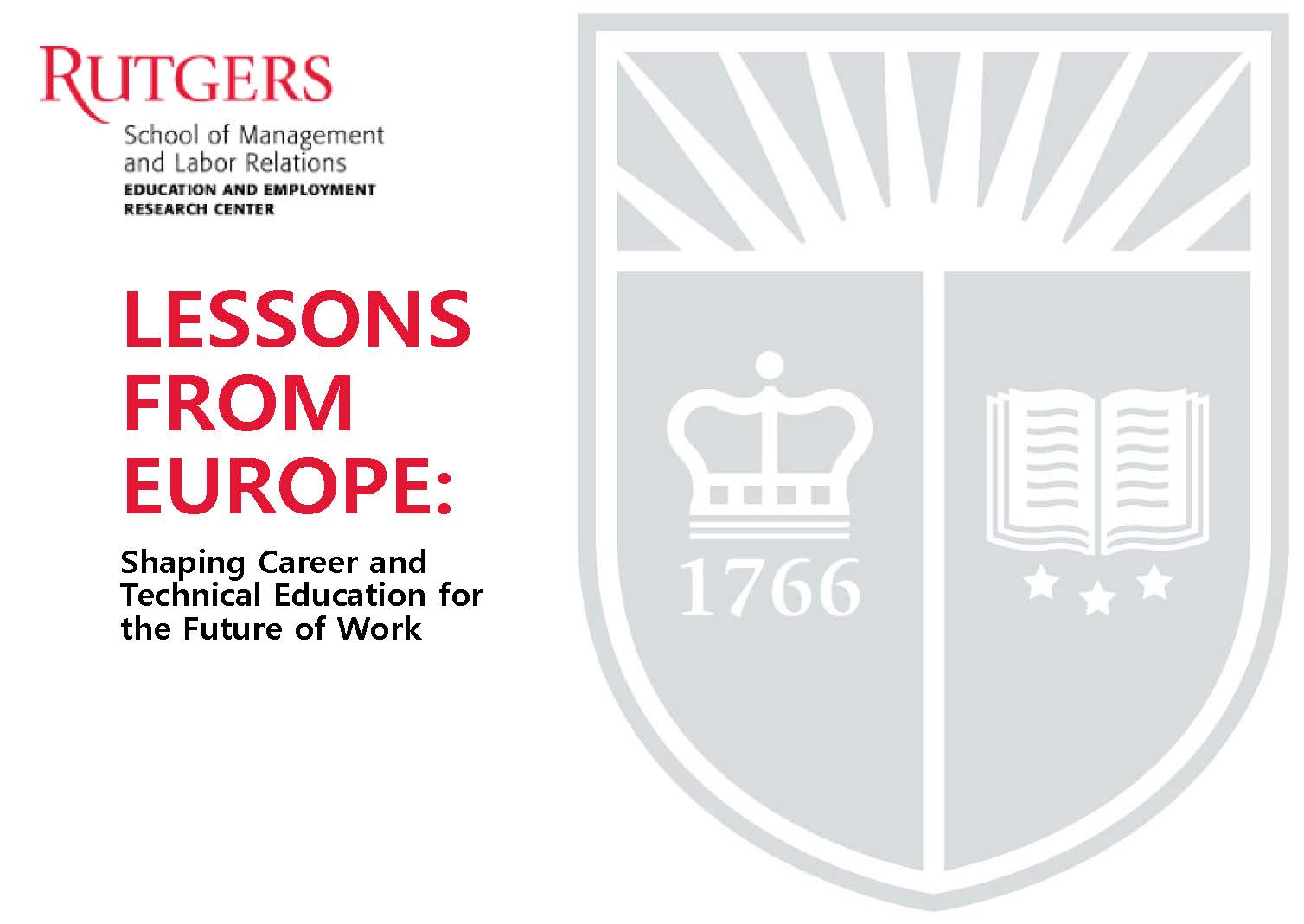
The changing nature of work requires that the U.S. education system must prepare skilled technicians who can function in an increasingly complex environment using diverse platforms and systems.
Vocational education models in Europe offer one way to explore how to prepare students for the future of work. This research project reviewed European practices in technical education that are replicable in associate degree programs in the United States and developed benchmark models that prepare students for the changing workplace.
(Text for inside page)
Technical education at two-year colleges needs to evolve to keep pace with the rapidly changing workplace. To address this challenge, this study examined European models of vocational education that can offer insight on how to prepare technicians for the future of work.
The project explored the European vocational education system through a review of the literature, web research, and interviews with European experts on technical education. The study developed recommendation for updating STEM technical programs, including new technologies that impact vocational education.
The project was conducted for the Center for Occupational Research and Development (CORD) as part of the National Science Foundation-funded research project Preparing Technicians for the Future of Work.
View our presentation, Lessons from Europe, Shaping Career and Technical Education for the Future of Work, from the 2021 National Career Pathways Network
Contact Us
Email: eerc@smlr.rutgers.edu




